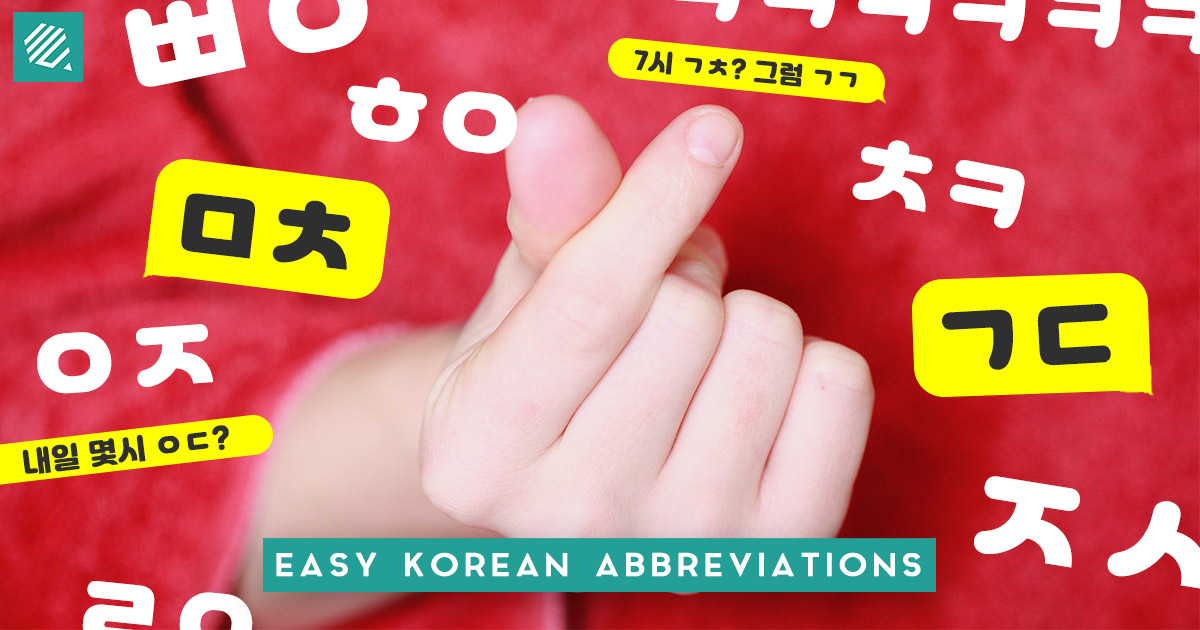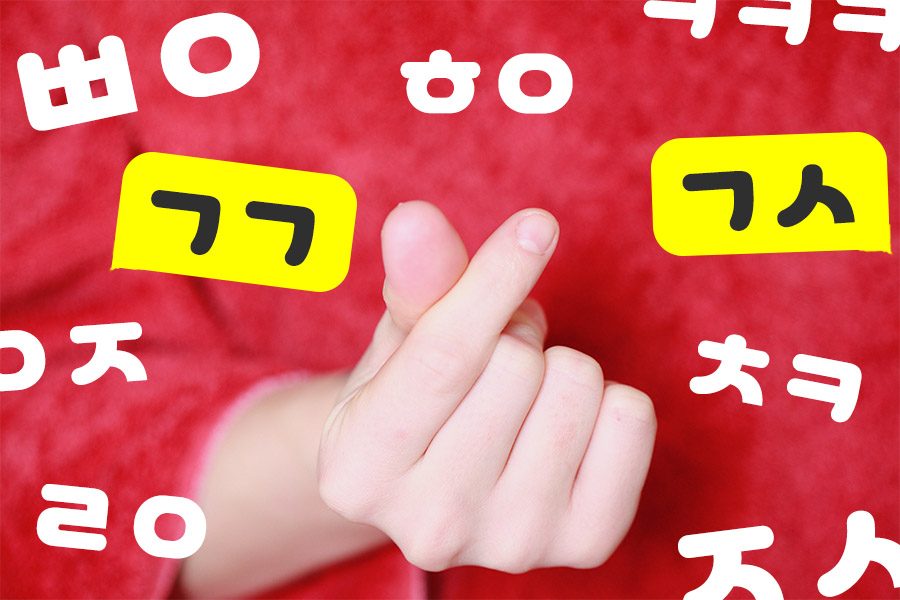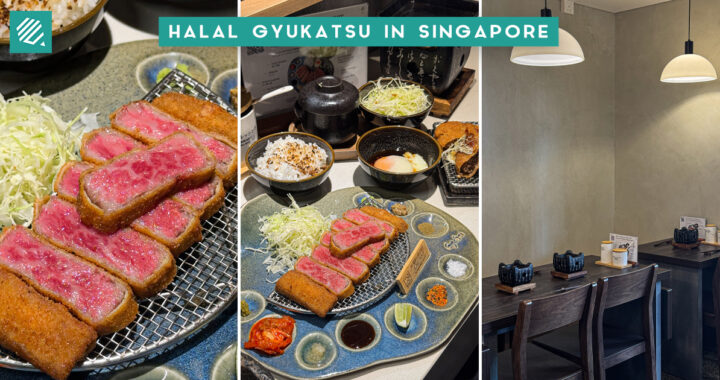If you’ve ever chatted with a local Korean over HelloTalk or KakaoTalk, you’d realise that sometimes, you have no idea what they’re saying because it’s not something you’d learn in Korean class! Well, just like how we have our own text slangs, there is a whole world of Korean text slangs out there!

Here are 21 Korean Text Slangs to help you begin your journey of sounding more like a true-blue Korean:
The Ultimate Korean Text Slang Guide
1. ㅇㅇ
Derived from 응응, which is an informal way of saying yes, ㅇㅇis used when you agree with some one’s point or when you simply wanna reply yes to a question.
For example:
A: 너 내일 학교 가? (You’re going to school tomorrow?)
B: ㅇㅇ (Yeah)
2. ㄱㄱ
ㄱㄱ is short for 고고, which literally means go-go. You can also use ㄱ on its own when you’re asking someone if they want to go somewhere/do something together.
For example:
A: 내일 농구 ㄱ? (Basketball tomorrow?)
B: ㄱㄱ (Go-go = saying yes to basketball)
3. ㄱㅅ
ㄱㅅ is short for 감사 (kamsa), which comes from the popular phrase 감사합니다 (pronounced kam-sa-ham-i-da). You can use ㄱㅅ when you want to express thanks to someone.
For example:
A: 졸업 축하해! (Congrads!)
B: ㄱㅅㄱㅅ~!! (Thank you thank you!)
4. ㅃㅇ
There are several variations to this Korean text slang, which is short for bye. Some type it like ㅂㅇ (short for 바이), while some type it like ㅃㅇ(short for 빠이).
Typically, younger people tend to go for ㅃㅇ because it sounds more cutesy/lively as compared to ㅂㅇ.
For example:
A: 내일 봐~ (See ya tmrw~)
B: ㅇㅇ~ ㅃㅇ~ (Ok bye~)
5. ㅅㄱ
This is short for 수고 which is derived from 수고했다 (you’ve worked hard). You would think that the short form ㅅㄱ would mean that, but no!
It’s usually used at the end of the conversation when everything that needs to be said, has been said. You can now go back to what you were doing before.
For example:
A: 그럼 내일 6시에 봐 (See you tmrw at 6pm then)
B: 알았어 ㅅㄱ ~ (Got it)
6. ㅉㅉ
This is short for 쯧쯧 which sounds similar to Tsk Tsk. In short, it’s similar to smh = shake my head.
7. ㄴㄴ
Short for 노노, which sounds like no no when verbalized.
Example:
A: 이거 맞는 거 같은데? (I think this is right tho?)
B: ㄴㄴ (No no)
8. ㄷㄷ
ㄷㄷ is short for 덜덜 (Pronounced deol deol) which is a shivering action one does when it’s cold or scared of something. It can also express a certain level of shock or surprise.
For example:
A: 쟤 옛날에 깡패였대.. (Heard he used to be a gangster)
B: ㄷㄷ 찐짜? (Really?)
9. ㅠㅠ
An expression you use when you want to express sadness. The characters look like someone crying, with the straight vertical lines looking like streams of tears.
10. ㅋㅋ
One of the most commonly used Hangul alphabets is ㅋ. It’s used when something is funny to the person. The number of ㅋ used can express how funny something is to the person. The more, the funnier.
Example:
A: 나 오늘 개똥 밟았어… (I stepped on dog poop today…)
B: ㅋㅋㅋㅋㅋㅋㅋㅋㅋㅋㅋㅋㅋㅋㅋㅋㅋㅋㅋㅋㅋ
11. ㅎㅎ
Similar to ㅋㅋ, ㅎㅎ (heu heu) is also an expression of laughter. However, while ㅋㅋ is used when something is funny ㅎㅎ has more of a toned down feeling to it. It isn’t used in really funny situations but can also be used in awkward situations.
For example:
A: 오빠, 미안해요, 약속 못 나갈거 같아요. 담에 봐요. (Sorry Oppa, I don’t think I can make it today. See you next time)
B: 어? 그래? 어쩔 수 없지 ㅎㅎ (Ah.. is that so? Can’t be helped then ㅎㅎ)
12. ㅁㄹ
ㅁㄹ is short for 몰라 (mol-la), a common phrase heard on Korean dramas and variety shows. It means ‘don’t know’ in Korean.
13. ㅊㅋ
Derived from 추카, which sounds like 축하 (chu-ka), ㅊㅋ is the abbreviation for congratulations in Korean.
A: 졸업 ㅊㅋㅊㅋ! (Congrats on your graduation!)
B: ㄱㅅ~ (Kamsa~)
14. ㅎㅇ
ㅎㅇ is short for 하이 (pronounced ha-ee). Just like how it sounds, it simply means hi!
15. ㅈㅅ
ㅈㅅ comes from the phrase 죄송 or 죄송합니다, which is ‘Sorry’ in Korean.
For Example:
A: 너 어디야? (Where are you?)
B: 아 좀 늦을거 같아! ㅈㅅ~ (Ah, I think I’ll be late, sorry!)
16. ㅁㅊ
ㅁㅊ comes from 미친 (pronounced mi-chin), which means crazy or mad. Make sure not to use this with elders and people you’ve just met!
17. ㅇㄷ
ㅇㄷ comes from 어디 (pronounced eo-di), usually used as a question to ask someone where are they. 어디야? = Where are you? in informal Korean speech.
18. ㄹㅇ
ㄹㅇ comes from the English word ‘real’. When spelt in Korean, it’s 리얼 (pronounced ri-eol) and has a similar pronunciation to its English counterpart.
Just like its name, ㄹㅇhas a ‘for real’ kinda vibe.
For Example:
A: 시험 겁나 어려웠어 (The test was freaking hard)
B: ㄹㅇ (For real)
19. ㅇㅋ
ㅇㅋ is short for 오키 (pronounced oh-key). Just from the pronunciation alone, you can probably tell that it’s the Korean way of saying ok.
20. ㄱㄷ
When we first came across this, we would’ve never guessed it! ㄱㄷ is short for 기다리다 (pronounced kee-da-ri-da) or 기다려 (pronounced kee-da-ryeo) which means to wait.
21. ㅇㅈ
ㅇㅈ is short for 인정 (pronounced in-jeong). The verb 인정하다 is the action of agreeing with someone or admitting something.
In chats, ㅇㅈ can be used when you agree with that person’s statement.
For example:
A: 차은우 진짜 얼굴천재다 (Cha Eun Woo is really good-looking)
B: ㅇㅈ
Easy Korean Abbreviations
The next time you talk with some of your Korean chingus, make sure to put some of these Korean Text Slangs to action to impress them.
*Follow MiddleClass.sg on Facebook, Instagram and Telegram for more food, travel and trending stories!










